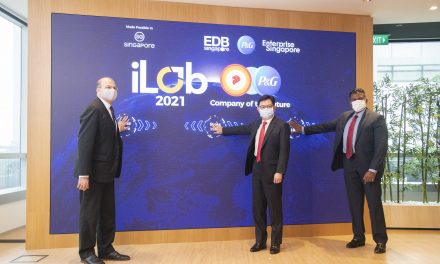Photo Credit – Gerd Altmann from Pixabay
In today’s interconnected world, cyber security is becoming a must-have for organizations of all sizes. Companies big and small need robust security solutions to protect them from ever increasing threats that are becoming more sophisticated and far reaching. With businesses using and exposed to a myriad of applications, networks, devices, and terminals, the threats of security breaches are growing in complexity and in opportunity. In addition to the financial losses, which last year reached close to $1 trillion, cyber crime’s impact can be felt across data breaches, network and operation disruptions, loss of trust, and spiraling prevention costs.
Against this backdrop, cyber security firms are always developing new technologies, countermeasure and protection systems. Farhad Khalilnia, CEO of Penta, a Dubai and Geneva based leading IT security solutions firm, explains: “Given the complexity and the opportunity for cybercrime, a robust security management program must be able to mitigate IT risks, anticipate and respond to security incidents, and maintain compliance with rules and regulations. Failure in any of these areas will compromise effectiveness, usually with significant detrimental impact on bottom lines.”
Security firms use a combination of information and event management systems to introduce Security Information and Event Management (SIEM) systems as part of any viable Security Operation Center (SOC). SIEM has been in use for the past decade, but it has grown considerably from its initial log monitoring core function. It now uses advanced software to monitor and analyze telemetry and logs from IT infrastructure points in real-time to detect irregularities and behavioral patterns that could signal threats. It relies on data collection from multiple sources and formats, and can be managed by internal IT security teams, or independently as an outsourced service.
In addition, and based on thorough audits and assessments, IT risk solution portfolios must now cover a comprehensive spectrum of services including governance, regulatory, and compliance requirements, and a host of complimentary services such as policy development, insurance support, training and awareness, monitoring and reporting. The key is to find the sweet spot of cost vs. benefit that matches organizational requirements to address real threat potentials. Products like Penta Sentinel aim to find this sweet spot.
Farhad added: “Winning the war against cybercrime is no longer limited to big organizations, banks, and government authorities. Today’s SMEs are global concerns with complex supply chains, interconnected networks, and international clients. They need the same bank-standard security for their operations and to safeguard their reputation. The war will be won by those companies that can get the right support, at the right price, in a scalable manner, with an IT security firm that works as a partner in their business.”
-PR Newswire











